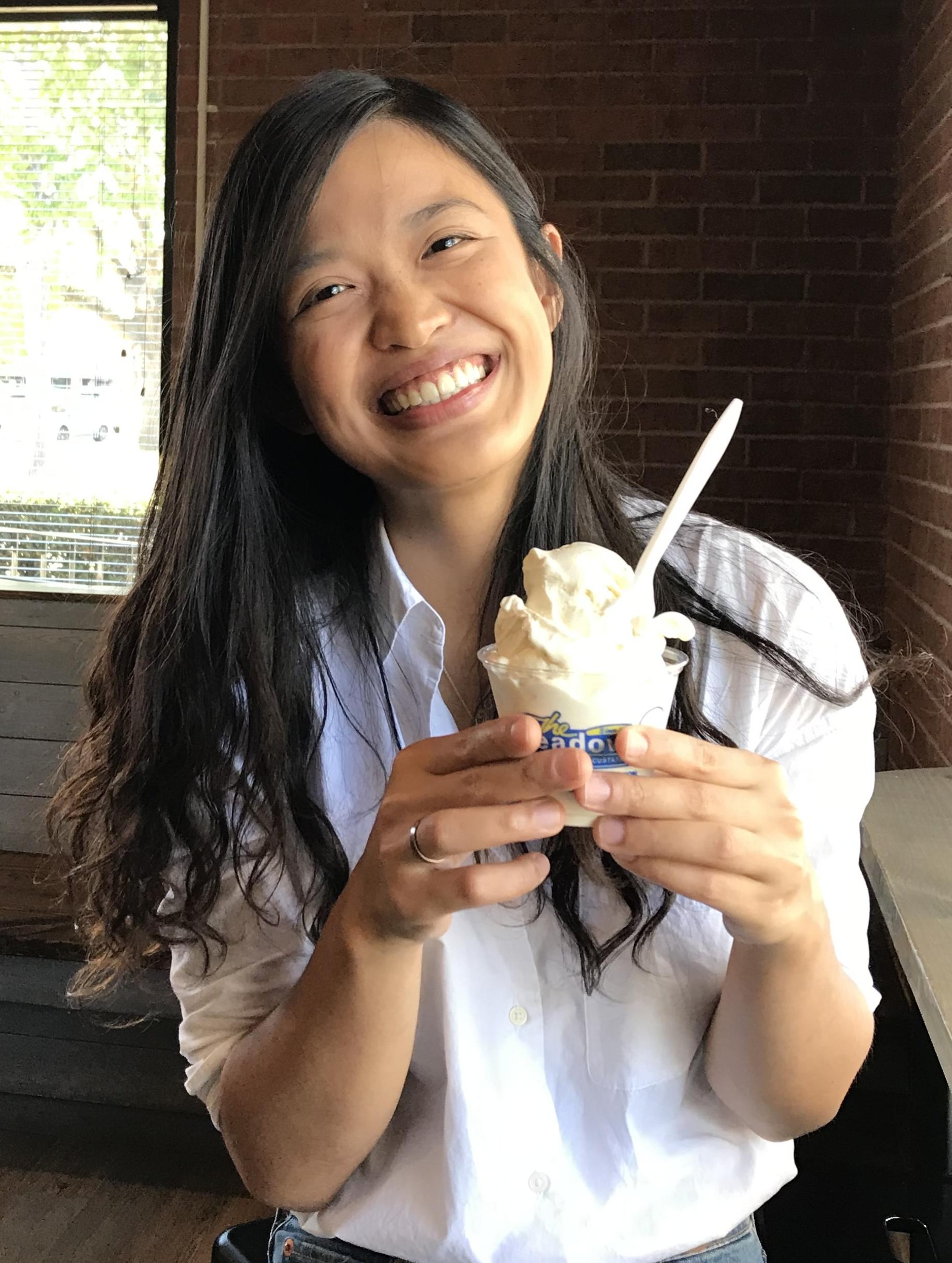Student Spotlight Award Recipient - Ti Hsu
Student Spotlight Award Recipient - Ti HsuCongratulations to Ti Hsu on being selected as the Student Spotlight Award winner for February 2025!
The purpose of this award is to highlight students who are doing important work in the CBS community whether for research, clinical, and/or volunteer-humanitarian efforts.
This is a way to highlight their achievements, let the ACBS community know important work students are doing, and possibly provide a platform for mentoring, collaboration, professional development, and conversations around highlighted areas.

Learn more about Ti Hsu
Background of CBS Research/Clinical/Volunteering efforts/achievements
I was introduced to the CBS community in 2020, when I began doctoral studies at the University of Iowa under the mentorship of Dr. Emily Thomas. Since then, I have pursued a program of research focused on: (1) using advanced quantitative methods to improve self-report measures of cognitive and emotional processes, with a special focus on psychological flexibility; and (2) exploring associations between such processes and health and psychosocial outcomes in at-risk emerging adults. This work includes a study examining whether self-report and behavioral assessments of distress tolerance are assessing the same construct, as well as a three-level systematic review and meta-analysis on the effects of ACT on undergraduate student psychological flexibility. I have also published work focused on the development and validation of a short-form, multidimensional measure of psychological flexibility. My dissertation focuses on the instrument’s continued refinement with a novel item response format, and will also investigate whether the instrument is invariant across respondents with previous psychotherapy experience versus those with no previous experience. I have also contributed to work investigating the psychometric properties of two psychological flexibility measures in a sample of older adults. I have presented poster and oral presentations at the 2021 and 2022 ACBS World Conferences, as well as CBS-related poster presentations at the 2023 annual convention of the association for psychological science (APS), and at the 2024 graduate student conference of the Society of Multivariate Experimental Psychology (SMEP). In addition, I serve as a student member of the JCBS editorial board.
Autobiography
I grew up in Tainan, Taiwan, and Columbus, Ohio. I received my BA in liberal arts from St. John’s College, and my MS in experimental psychology from William & Mary, where I explored biopsychosocial mechanisms contributing to the effects of stress on psychopathology, and how mindfulness interacts with disordered eating behaviors to affect food intake. Currently, I am a fifth-year doctoral student in the clinical science program at the University of Iowa. My current research focuses on different cognitive and emotional processes that contribute to risk and resilience for psychopathology, and how self-report instruments used to measure them can be improved and refined for use in different research and clinical contexts. This work is informed by my training in and experiences in delivering ACT. I also have a strong interest in quantitative methods, and have received training in generalized linear models, longitudinal multilevel models, factor analysis, item response theory, structural equation modeling, and network analysis. I believe that these methods can help us better understand how different cognitive and emotional processes should be assessed, as well as capture their dynamic nature over time. Outside of work, I enjoy going on runs and engaging in other outdoor activities such as hiking and backpacking. Other hobbies include watercolor painting, houseplant keeping, and searching for good food.
Future goals
I hope to continue building a program of research focused on improving self-report measures of psychological flexibility and other psychological processes while exploring associations between these constructs and psychosocial outcomes in emerging adults.
Publications:
Hsu, T., Hoffman, L., Thomas, E.B.K. (accepted). Measurement invariance and confirmatory measurement modeling of a psychological flexibility questionnaire across Likert and Expanded response formats. Multivariate Behavioral Research.
Hsu, T. , Adamowicz, J. L., & Thomas, E. B. K. (2023). The effect of acceptance and commitment therapy on the psychological flexibility and inflexibility of undergraduate students: A systematic review and three-level meta-analysis. Journal of Contextual Behavioral Science, 30, 169–180. https://doi.org/10.1016/j.jcbs.2023.10.006
Hsu, T. , Hoffman, L., Thomas, E.B.K. (2023) Confirmatory measurement modeling and longitudinal invariance of the CompACT-15: A short-form assessment of psychological flexibility. Psychological Assessment, 35(5), 430–442. https://doi.org/10.1037/pas0001214
Hsu, T. , Thomas, E. B. K., Welch, E. K., O'Hara, M. W., & McCabe, J. E. (2023). Examining the structure of distress tolerance: Are behavioral and self-report indicators assessing the same construct? Journal of Contextual Behavioral Science, 27, 143–151. https://doi.org/10.1016/j.jcbs.2023.02.001
Adamowicz, J. L., Thomas, E. B. K., Hsu, T., Denburg, N. L., & Roche, A. I. (2022). A preliminary investigation into the factor structure of two psychological flexibility measures in a sample of community-dwelling older adults. Clinical Gerontologist, 1–13. https://doi.org/10.1080/07317115.2022.2131496